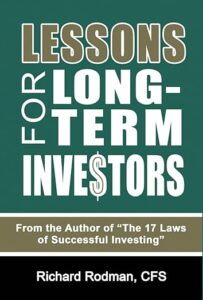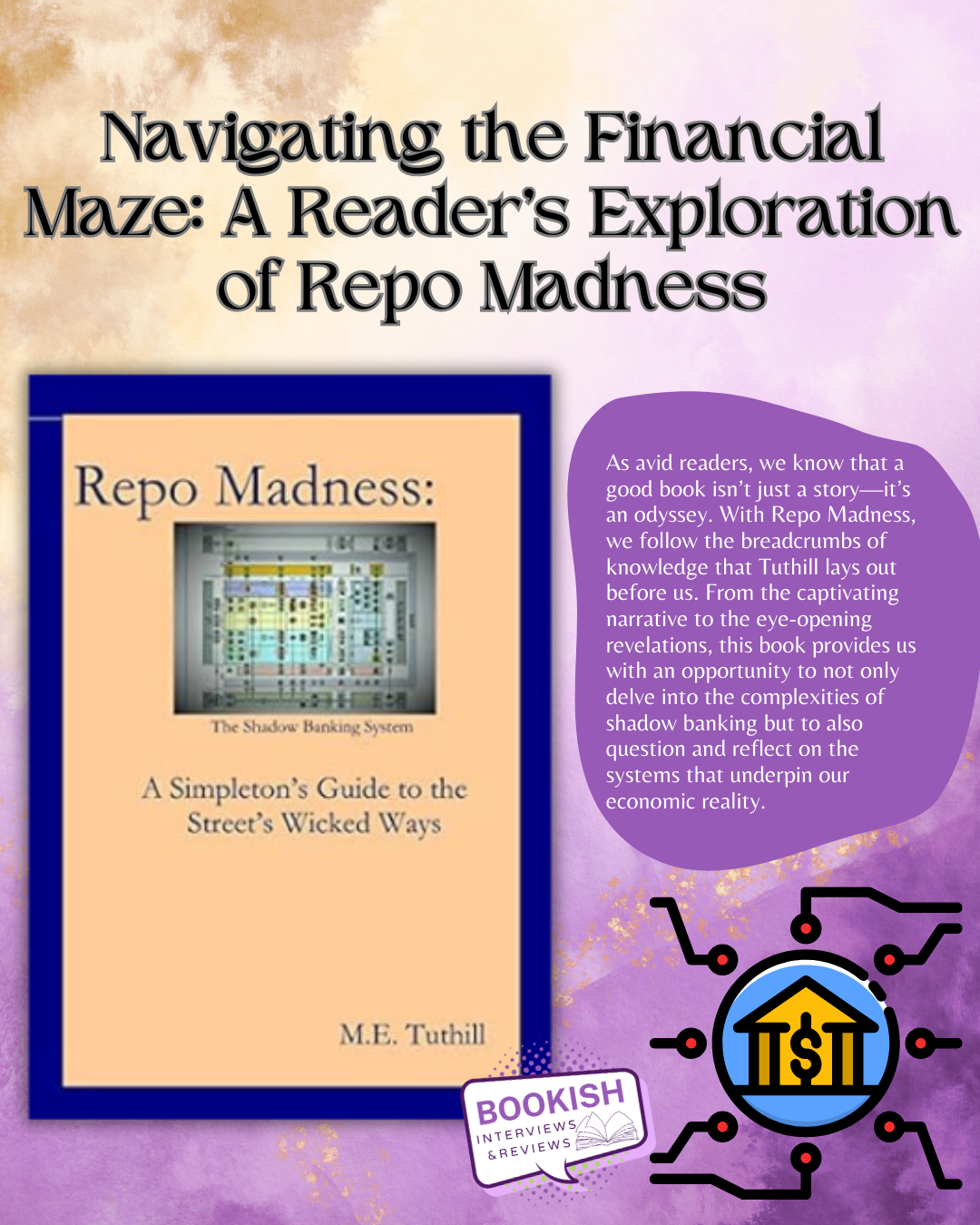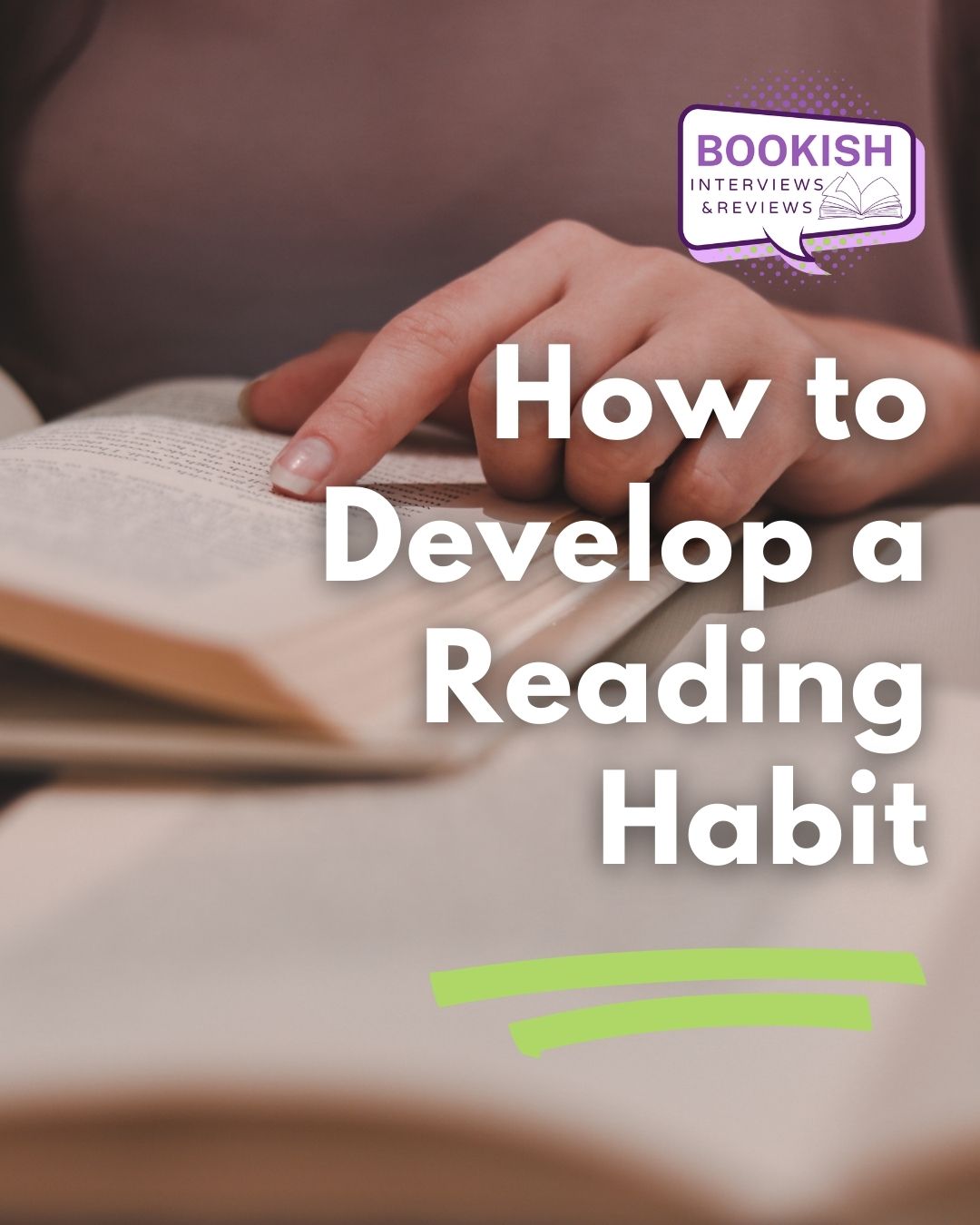Richard Rodman, author of the best-selling book The 17 Laws of Successful Investing, has released a new book! Lessons for Long-Term Investors is a blueprint for wealth creation and successful investing. The concepts in his book are garnered from over 50 years of successful investment advice and practices. It’s easy to get lost in things such as human emotion and the changeability of financial markets, but Rodman’s book seeks to aid and advise readers through the mist. We’re pleased to have this opportunity to interview Richard Rodman and ask him some questions about Lessons for Long-Term Investors, so read on to learn more about this fantastic financial advisory book!
What are some key advantages that investors can expect to gain from adopting a long-term approach?
The advantages of long-term investing speak for themselves. The biggest one is that investors can be confident in the fact that they don’t need to constantly be right in their trades. The long-term, if correctly researched and thought through, lead to better results. The advantages of long-term investing are that one can better manage money on one’s own knowing they have a very long history of financial markets, they can lean on when times are difficult and not be emotionally swayed by both good and bad news.
 Could you share a bit about your personal journey in the world of finance and investing? What inspired you to become interested in this field?
Could you share a bit about your personal journey in the world of finance and investing? What inspired you to become interested in this field?
Great question. About 60 years ago my father bought a stock that I followed in our local newspaper. One day, it disappeared. I asked why and my father said it went bankrupt. So I was fascinated by this and thought I should learn more about investing and so the journey began. I thought it was necessary if I wanted to have a better life.
Could you share one or two compelling stories that illustrate the power of long-term investing in action?
One would be Warren Buffet. He has successfully used compound interest over time which has
enhanced his performance over time. His record speaks for itself.
Budgeting is often considered the cornerstone of personal finance. How do you recommend individuals create and stick to a budget that aligns with their financial goals?
Yes, this is extremely important. What I say in the first section of the book which has 13 Laws of Investing is to pay yourself first each month. Make it a reasonable number. You will be surprised that you will be able to pay all your bills and invest as well. It is amazing how money falls into the cracks each month if you don’t have a plan.
Sustainable investing and ESG considerations are increasingly important to many investors. How does your book explore the integration of environmental, social, and governance factors into long-term investment decisions?
My book does not address this subject as it is a personal value judgement. However, it has been
shown in some studies that ESG investing does produce enhanced results at times if all other
things are equal.
Debt can be a significant financial challenge. How do you suggest people approach managing and reducing different types of debt effectively?
If you are paying 18% for instance on credit card debt, so if you reduce that, it is like investing with a return of 18%, which is very good. So, get rid of all debt that carries a high interest rate first.
Throughout your book, you share practical strategies for selecting investments with long-term potential. Could you give us a sneak peek into some of the criteria or methodologies you suggest readers use for making such decisions?
This depends on how you are investing, whether it be in individual stocks, mutual funds, or exchange traded funds. Each is evaluated differently, and each investor has to figure that out and be content with their conclusions. That said, traditional fundamental and technical analysis is the foundation. I encourage each investor to be well versed in both before investing.
Risk and return are interconnected in investing. How do you explain the concept of risk to new investors, and how can they balance risk and potential returns?
A good question. Risk can be commensurate with return and vice-versa. Everyone is different but only experience in investing can help you reach your comfort zone over time. I sometimes look for a potential reward to be at least two times the risk.
Financial literacy is essential for successful long-term investing. How do you address the importance of educating oneself about investment principles and concepts in your book?
It is extremely important. As mentioned, Fundamental Analysis and Technical Analysis need to be learned to a considerable degree before investing. There are many great books on each subject.
What factors should individuals consider when deciding between a long-term investment approach and a short-term trading strategy?
Long Term works better for the vast majority of investors, hence my book Lessons for Long-
term Investors. It allows history to work for you over the long run, reduces risk and time spent on your portfolio.
For readers who are new to investing, what foundational knowledge or key concepts do you ensure are covered in your book to help them build a strong understanding of long- term investment principles?
The key concepts are to know yourself first. What are your goals and objectives? How much time do you have to devote to your investments? If it is not a lot for example, maybe most of your portfolio should be in mutual funds or exchange traded funds rather than individual stocks which take more time.
Retirement planning is a key aspect of personal finance. What steps do you recommend individuals take to ensure a financially secure retirement?
Know your time frame, risk tolerance, and goals and objectives. Also know that everyone is living longer, so stocks should always be part of your portfolio to be able to beat inflation, which is key. The goal is to make your money always work as hard for you as you did for it.
Emotional biases can impact investment decisions. How can individuals become aware of these biases and make more rational financial choices?
Emotions are a big part of all this. Being emotional leads to bad investment decisions. First, ask yourself when markets are in turmoil if your goals and objectives have changed. If you are a long-term investor (as in the book title) realize that reacting to short term swings is not going to be your best interest. Know that history is on your side and trust it. Markets in a capitalistic society move higher over the long run. Yes, there are bumps and bruises along the way but if you construct a well thought out portfolio, you would be wise not to overreact to news events, good or bad.
Finally, what do you hope readers will take away from Lessons for Long Term Investors? Are there any overarching messages or actionable steps that you encourage them to implement in their investment journeys?
Yes, Start Now in investing or Start Changing how you do things now, hopefully using a lot of
the concepts mentioned in the book. May you all experience a successful journey. The idea of course is to have your money work as hard for you as you did for it.
Find the Author
About the Author
Richard Rodman, CFS, has spent over fifty years debunking the myth that creating wealth and dealing with financial matters is difficult to understand. As a result, he has devoted his career to helping  business owners, professionals, and top executives at companies such as AT&T, Supermarkets General, Johnson & Johnson, McGraw Hill, Cisco Systems and Google realize their wealth creating potential.
business owners, professionals, and top executives at companies such as AT&T, Supermarkets General, Johnson & Johnson, McGraw Hill, Cisco Systems and Google realize their wealth creating potential.
He is the author of the best-selling book, The 17 Laws of Successful Investing. In addition, his articles have appeared in PTA Today and Human Resource Professional magazines and he has written over 180 newsletters on the financial markets.
Mr. Rodman has also lectured on financial independence at many corporate venues with his seminar entitled “How to Create and Manage Wealth”. He is also devoted to financial education for younger generations and has established the Stock Market Competition Program for local Boys and Girls Clubs. He’s received a BS in Finance at Rider College where he was the recipient of the coveted Wall Street Journal Achievement Award.
He lives in New Jersey and Florida and enjoys family, golf, and travel.





















































